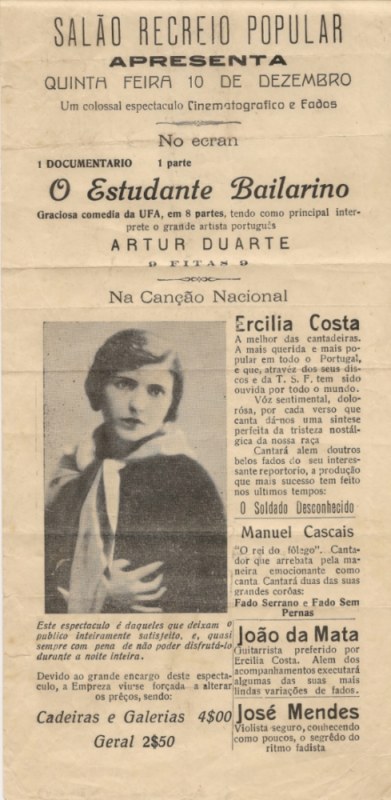Know more:
Ercília Costa
(N. 3 August, 1902 - M. 16 November, 1985)Ercília Costa was born in Costa da Caparica on August 3, 1902. When she was 3 years old her family relocated to Rua Maria Pia, and that is why she always showed the deepest affection for the Alcântara quarter.
In order to help her family she began working as seamstress apprentice but soon joined the artistic career with the Portuguese vaudeville theatre (teatro de revista), appearing with major stars as Luísa Satanella or Beatriz Costa, but her greatest hits and subsequent popularity happened for her Fado interpretation.
Ercília Costa had always loved to sing. As a teenager she did audition to join the cast of a play in Teatro São Carlos. She was chosen but the project was cancelled. Eugénio Salvador, however, noticed her quality and invited her to join the Companhia do Teatro Maria Vitória.
She began her fado singing career in 1927 at Teatro da Trindade, with a duet with Alberto Reis but, as Ercília Costa told the newspaper “Trovas de Portugal”: “Prior to singing fado I was already singing in the theatre... As a chorus girl I toured the country for three months with Companhia Almeida Cruz.” (“Trovas de Portugal”, June 24, 1933)
In 1930 she won the 1st singing prize at the fado competition “Sul América”, promoted by the newspaper “Guitarra de Portugal”. The winning male interpreter was Alfredo Marceneiro, and they both soon joined the “Troupe Guitarra de Portugal”, a group of fado singers and players that toured the country. This group also included the above-mentioned Ercília Costa and Alfredo Marceneiro, the singers Rosa Costa and Alberto Costa, and the guitar players João Fernandes and Santos Moreira.
Throughout the 1930s both Ercília Costa and Adelina Fernandes – and later on Berta Cardoso or Hermínia Silva - were regular guest singers at the Portuguese vaudeville theatre, thus replacing the actors in fado sketches and creating a space for fado professionals within the plays.
She appeared in the plays “Feira da Luz”, staged in 1930 at Teatro da Trindade; “O Canto da Cigarra”, staged the following year at Teatro Variedades, in which she was a great hit with “Fado Lisboa”, by Álvaro Leal and Raúl Ferrão; “Fogo de Vistas”, in 1933 at Teatro Avenida; “Fim do Mundo”, at Coliseu dos Recreios in 1934; and “A Boca do Inferno”, staged in 1937 at Teatro Apolo.
She also did some special appearances in the films “Amor de Mãe”, directed by Carlos Ferreira in 1932, “Amargura”, “Lisboa 1938”, and in the feature film “Madragoa”, where she played the role of the mother of the star, a character played by Carlos José Teixeira. This film directed by Perdigão Queiroga premiered on January 1952, and its cast also included Estevão Amarante, Helga Liné, Silva Araújo, Costinha, and the fado singer Deolinda Rodrigues.
Ercília Costa appeared live on the first Portuguese radio station - the Chiado CT1AA -, and at some casas de fado, as Ferro de Engomar or Solar da Alegria. She also made long tours in Portugal and abroad.
With João da Mata, Armandinho, and Martinho d’ Assunção, she did shows in Madeira and Açores in 1932, and - in 1936 – travelled abroad for the first time to Brazil and began a whole series of long tours that would make her the first fado singer to perform before the Portuguese communities abroad.
Her first tour to Brazil with the Companhia de Vasco Santana e Mirita Casimiro was such a success that she stayed in the country for a long time, returning to Lisbon the following year – in 1937 – to be welcomed by two celebration parties at the tearoom Café Chave d’ Ouro and at Retiro da Severa.
Still in 1937, Ercília Costa travelled to Paris to perform at the Comédie Française at the Champs Elysées. In 1939 the Secretariado de Propaganda de Portugal invites her to travel to the United States to do a show with Carlos Ramos at the Portuguese Pavilion of the New York International Fair.
This performance was followed by ten months appearances in various cities of the United States. Her shows in Los Angeles and Hollywood were a major hit in California.
In 1945 she did her third Brazilian tour. She appeared in theatres, cinemas and radio broadcasts for fifteen months, and was the only Portuguese artists in the Companhia de Alda Garrido.
Quite often named ”Santa do Fado” (Fado Saint) for the way she hold her hands in prayer, Ercília Costa is not very famous today – maybe because many of her recordings date from the first half of the 20th century and haven’t been released in CD. The only exceptions are some recordings with Armandinho, released in 1995 in the collection “Arquivos do Fado” by Tradisom.
Her first recordings date from 1929, when she travelled to Madrid to record for Odeon, with Berta Cardoso, Joaquim Campos, and Cecília de Almeida, accompanied by Armandinho on the Portuguese guitar, and Georgino de Sousa on the guitar. She also recorded in Portugal, Brazil, and the United States. Her last LP - “Museu do Fado” – was released in 1972.
Ercília Costa popularised several themes, as: “Amor de Mãe”, “O Meu Filho”, “Fado Tango”, “Fado Aida”, “Fado Ercília”, “Juro” or “Fado da Amargura”, and composed some of her greatest hits: “Fado da Mocidade” and “O Filho Ceguinho”, also known in the milieu as “Menor da Ercília”.
The fado singer decided to dedicate herself to her marriage and retired from the artistic career in 1954 without any kind of farewell. Until her death in 1985 Ercília Costa did no more live shows.
Source:
“Guitarra de Portugal”, September 17, 1930;
"Trovas de Portugal”, June 24, 1933;
“Canção do Sul”, November 3, 1934;
“Guitarra de Portugal”, October 8, 1936;
“Guitarra de Portugal”, September 10, 1938;
“Guitarra de Portugal”, June 10, 1939;
“Canção do Sul”, May 1, 1940;
“Guitarra de Portugal”, July 1, 1946;
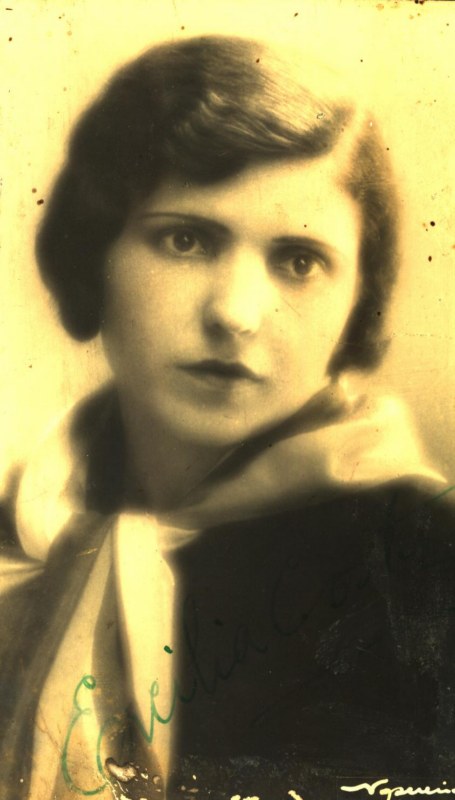
Ercília Costa
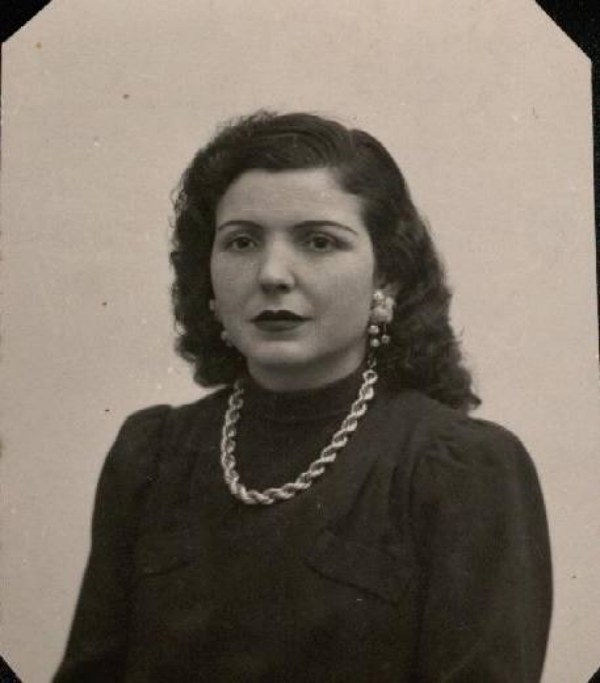
Ercília Costa
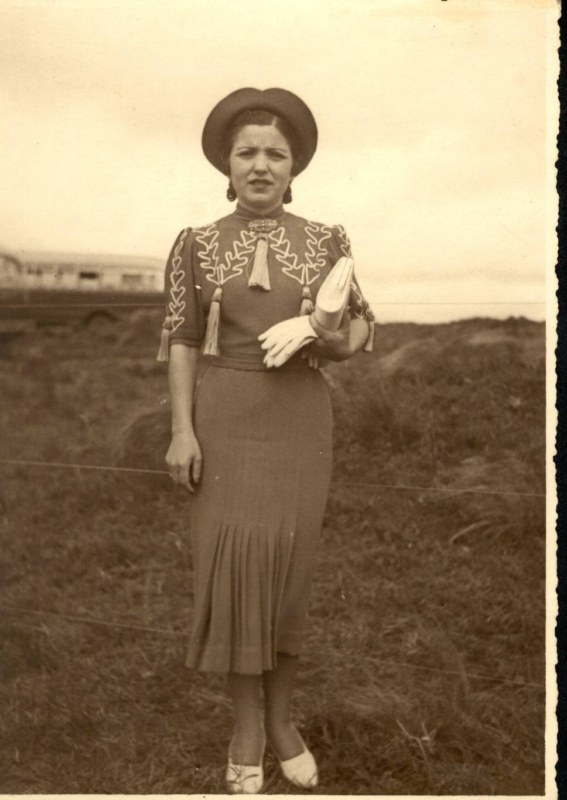
Ercília Costa
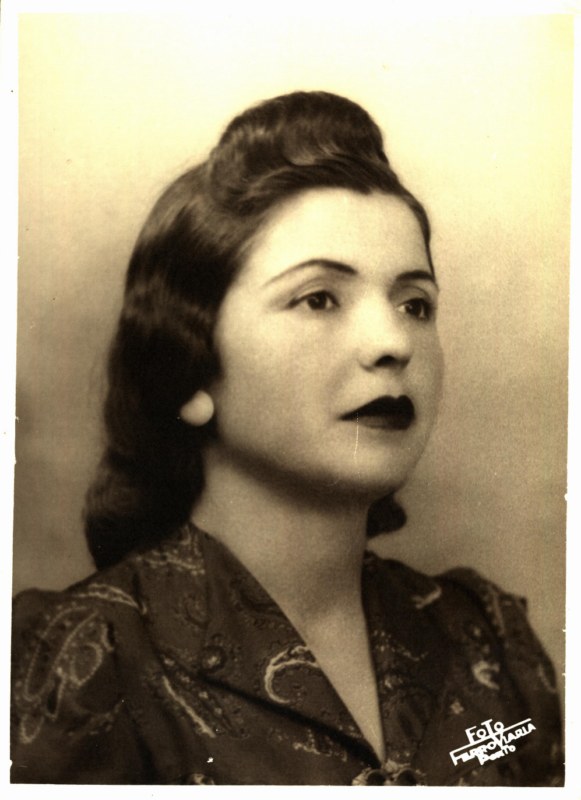
Ercília Costa
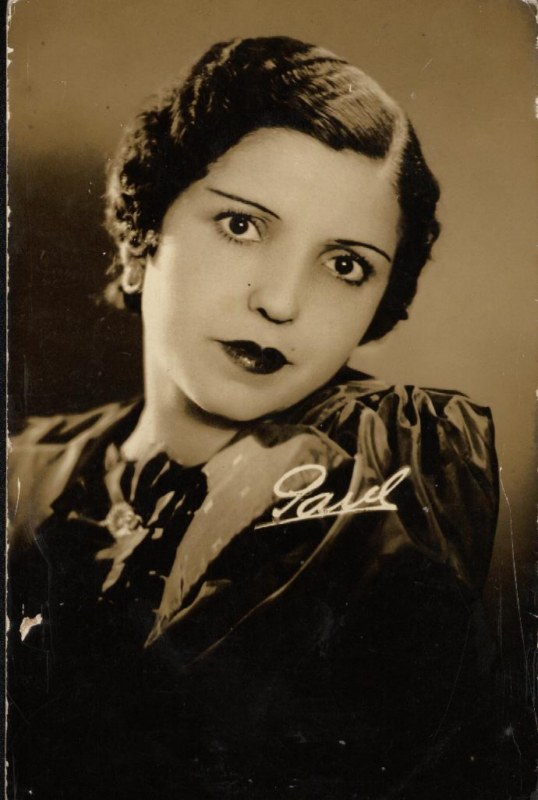
Ercília Costa
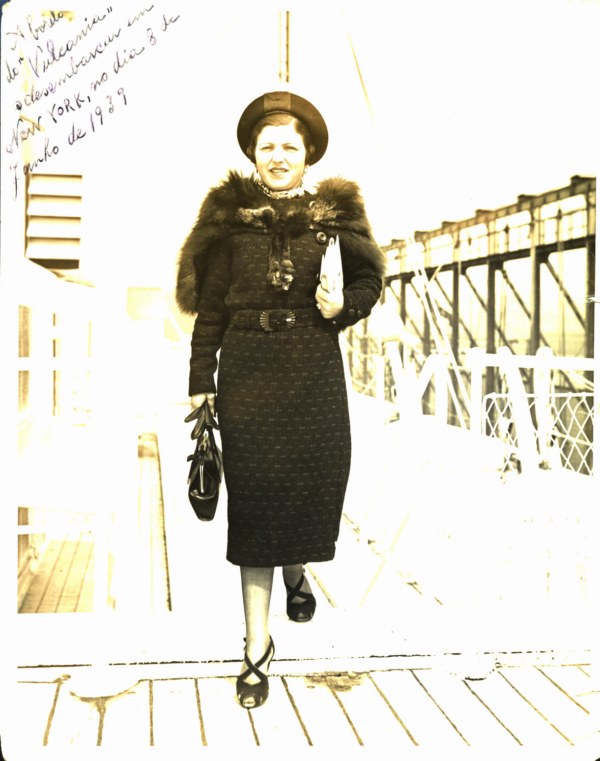
Ercília Costa
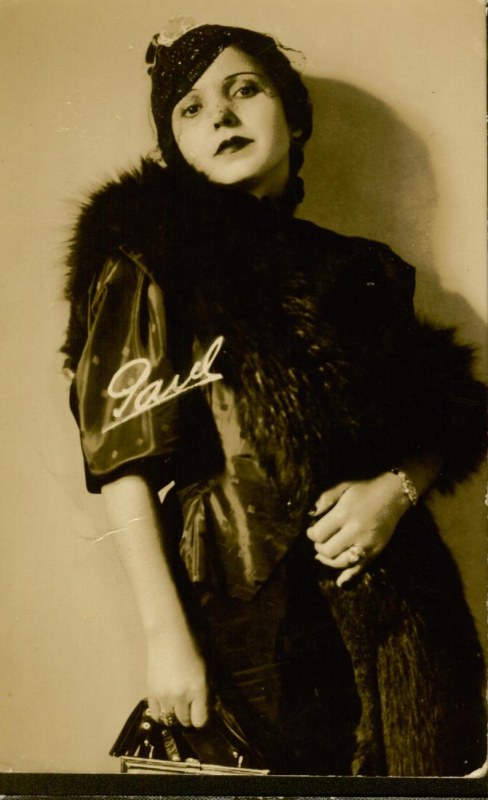
Ercília Costa
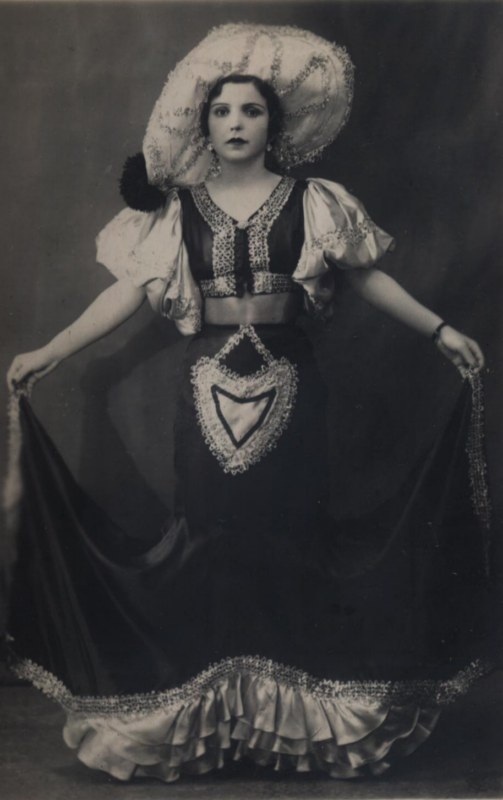
Ercília Costa
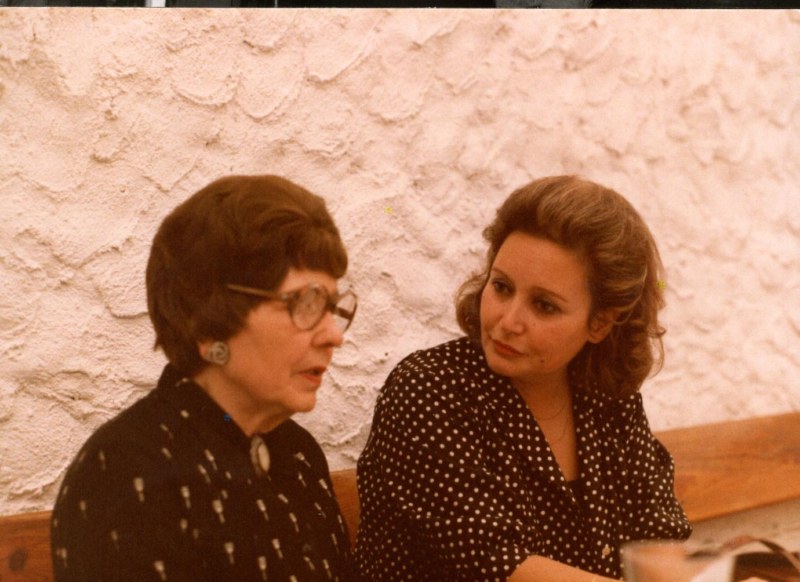
Ercília Costa, Maria do Rosário Bettencourt
-
Fado Sem Pernas Ercília Costa (Manuel Maria / Guilherme Coração)
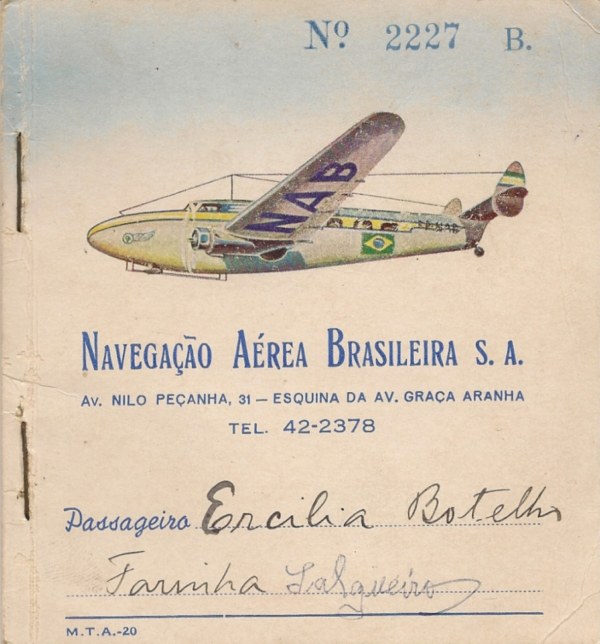
Bilhete de Avião | Airline Ticket de Ercília Costa, 1946
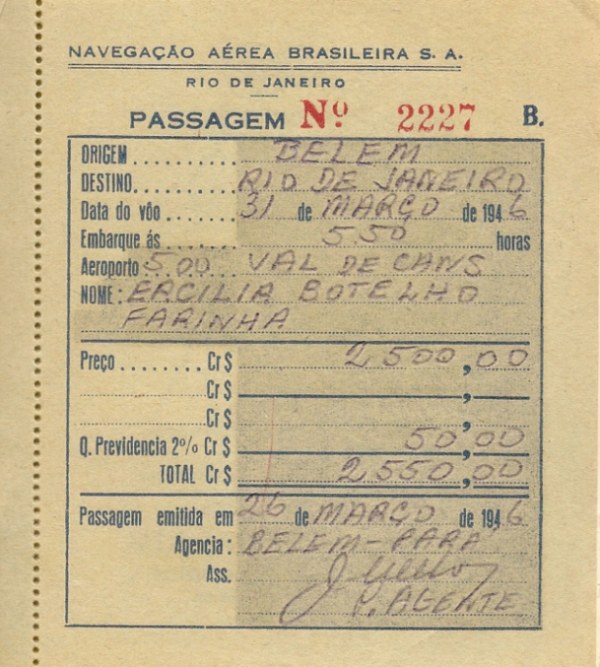
Bilhete de Avião | Airline Ticket de Ercília Costa, 1946
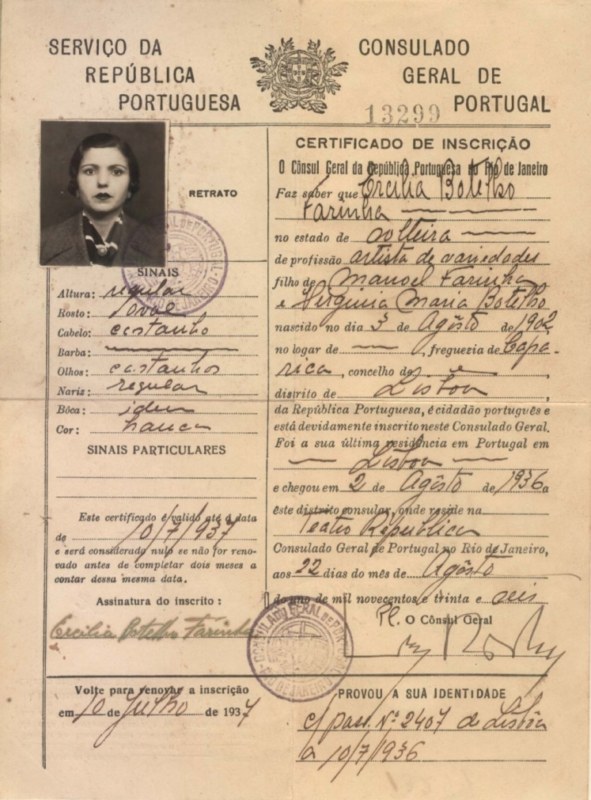
Certificado de Inscrição | Registration Certificate, Ercília Costa, Consulado Geral de Portugal, Rio de Janeiro, Brasil | Brazil, 1936
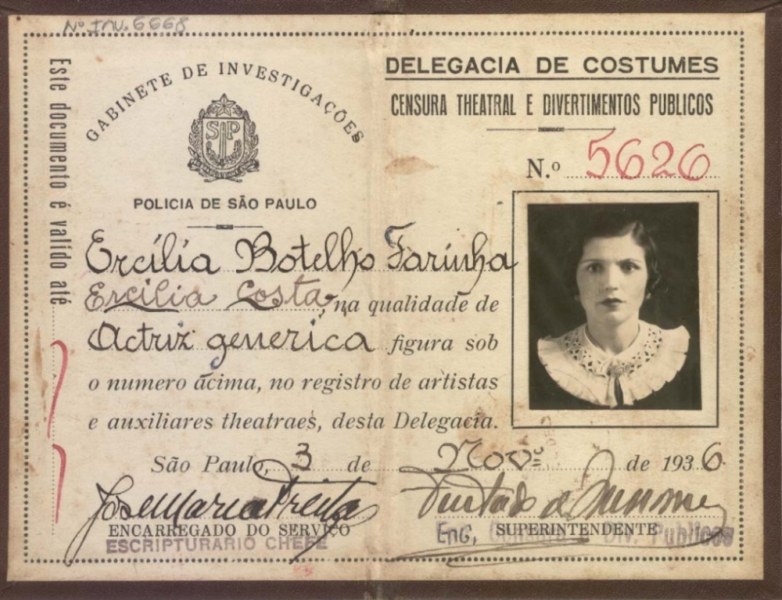
Certificado de Registo de Artistas | Performers Registration Certificate, Ercília Costa, São Paulo, Brasil | Brazil, 1936
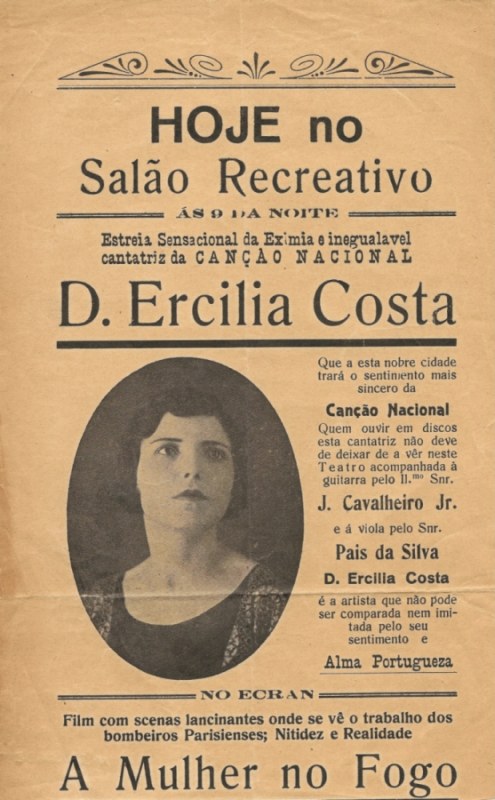
Ercilia Costa, Déc. 40
